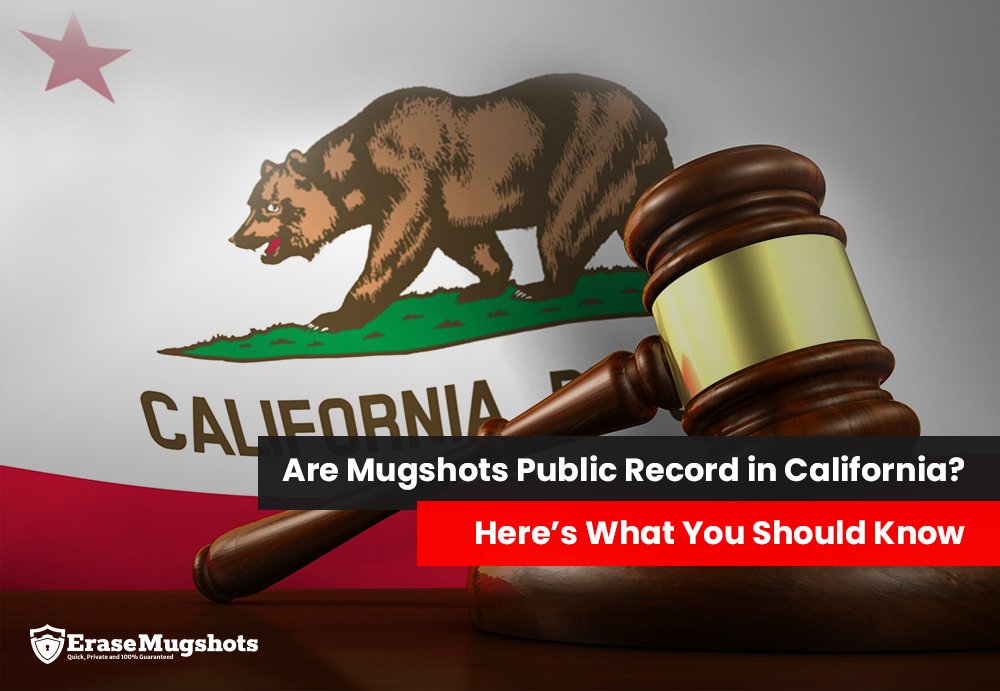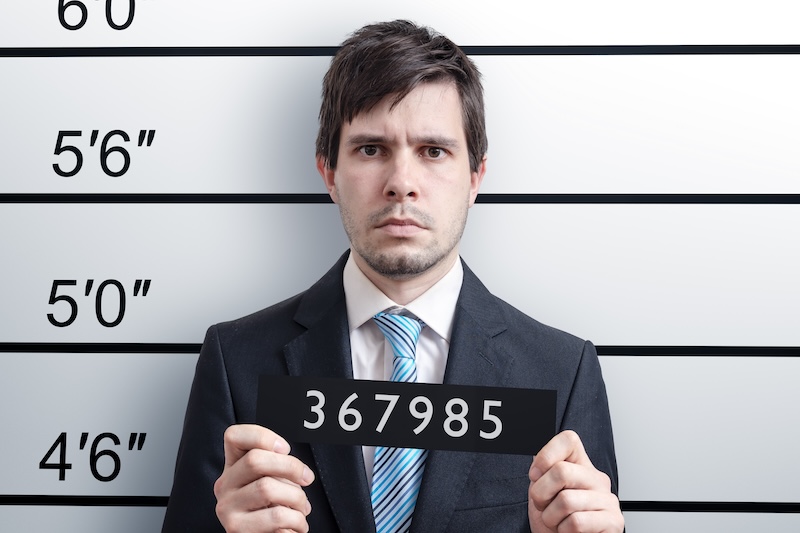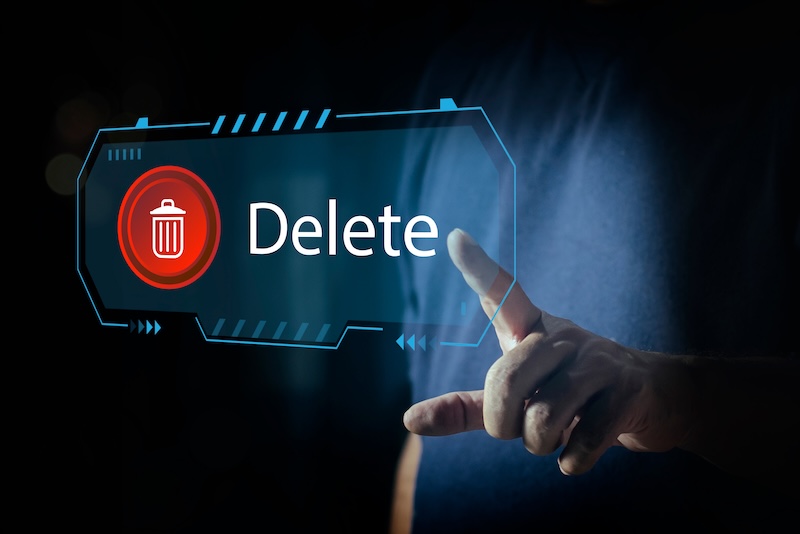100% Satisfaction Guaranteed
We offer a total mugshot removal solution to remove your mugshot and arrest details from the internet once and for all.

Table of Contents
Are mugshots public record in California? Read on to find out.
Mugshots are more than just pictures; they play a key role in the legal system — and in public perception.
In California, mugshots are public records. That means that, according to public records laws, anyone can access your booking photos, arrest records and other sensitive information.
This article discusses laws about California arrest records, as well as information about accessing them and the impact of having one available online. Whether you’re doing a background check on someone else or trying to clear your name, this guide offers valuable insights into mugshots in California and public records laws.
Our mugshot removal services will remove your online arrest records, crime reports and mugshot images fast. Contact us today at 866-601-6803 to learn more.

California arrest records and mugshots are generally considered public records under the California Public Records Act (CPRA). This means that the public is allowed to access your arrest report and similar information.
This aligns with principles of transparency and accountability in law enforcement. However, it poses privacy challenges, especially when arrests don’t lead to convictions. The California Constitution highlights the balance between public access and personal privacy rights.
Mugshots in California are governed by the CPRA, ensuring transparency in the criminal justice system while addressing privacy concerns. In addition to booking photographs, California’s criminal records are also governed by the CPRA. Compliance with these laws is crucial for balancing public interest and individual rights.
Recent regulations have tightened the distribution of mugshots, particularly regarding profit-driven websites. The California Consumer Privacy Act also restricts the sharing and using of personal data, including mugshots. Law enforcement must continuously train to prevent the unlawful sharing of images that could harm reputations. Under certain circumstances, individuals can request the removal of their mugshots from public databases.
Following these regulations is essential for protecting privacy and maintaining trust in the legal system.

Accessing mugshots in California involves following procedures set by local law enforcement agencies, including sheriff’s offices and police departments. Mugshot lookups can be done through online databases or a Public Records Act request. Transparency in accessing these records ensures public safety and accountability in the criminal justice system. Understanding the correct process empowers individuals to lawfully obtain the information they seek.
Yes, mugshots are often available online through public records databases and law enforcement websites in California, providing a convenient way for individuals to access arrest records. In addition to online databases, local court records can provide detailed information about arrests and criminal charges, including mugshots. Many sheriff’s offices and law enforcement agencies maintain mugshot databases that allow users to search for arrest records, promoting transparency and public access to information. The availability of these records online can vary based on local policies and privacy regulations.
To find specific mugshots, you can visit the official websites of local county sheriff’s offices or use larger databases that aggregate this information. These platforms often allow searches by name, arrest date, or location.
The CPRA aims to make government records accessible, but privacy stipulations exist. Some jurisdictions may restrict access to sensitive information to protect individuals’ privacy, for example.
Balancing public interest with individual privacy rights is crucial when accessing California arrest records. With the increasing use of digital platforms, understanding these implications is essential for responsible browsing and usage.
Our mugshot removal experts will analyze search engine results to find and remove your mugshots and criminal history information online. Call us at 866-601-6803 for more information.
Individuals can formally request mugshots from a local law enforcement agency in California by following the California Public Records Act procedures. Typically, this involves submitting a written Public Records Act request to the relevant agency, such as the sheriff’s office or local police department, specifying the need for the mugshot. While most mugshots are accessible to the public, some records may be exempt from disclosure due to privacy laws or ongoing investigations.
To navigate this process smoothly, follow these steps:
Be aware of potential exemptions under privacy laws, as these can affect what is available. Understanding these laws helps obtain the desired records and reinforces the importance of transparency in law enforcement.

Accessing mugshots in California serves various purposes, such as conducting background checks, reviewing criminal and arrest records, or satisfying personal interests.
While these records provide valuable insights, it’s important to respect the privacy of those depicted and be mindful of the potential impacts on their lives. Balancing the need for public information with ethical considerations helps ensure the responsible use of California arrest records.
Having a mugshot publicly available can lead to significant consequences, including social stigma and discrimination in employment and housing. This visibility can damage an individual’s reputation, making securing jobs or housing difficult, even after resolving legal issues. The tension between public access to mugshots and the need for privacy protections is evident as those striving to rebuild their lives face ongoing challenges:
Addressing these issues requires reevaluating how mugshots are handled and disclosed to promote fairness and rehabilitation.

In California, individuals can seek to remove their mugshots from public records through legal processes like expungement or sealing records, depending on their case. These options require a court order and allow eligible individuals to remove certain arrest records, including mugshots, from public access. Successfully navigating these processes often requires the assistance of legal professionals familiar with California’s laws and regulations regarding criminal records and privacy.
Removing a mugshot from the public record in California typically involves filing for expungement or petitioning to seal records, which requires submitting specific legal documentation to the court. This may involve various California departments, such as the California Department of Justice (DOJ) and the California Department of Corrections and Rehabilitation (CDCR), which manage public records and oversee parole hearings.
When contacting a California department, here are key steps and considerations for individuals taking this important step:
Proving your rehabilitation is often central to the process, demonstrating to the court your sincere effort to make positive changes. Specialized legal expertise is invaluable in ensuring all steps are correctly followed and increases the chances of a successful petition.
We work on behalf of our clients to erase mugshots, arrest records, police reports and other sensitive information from the internet. Give us a call at 866-601-6803 to learn more.
Yes, there are exceptions to having a mugshot removed from public record in California, particularly for ongoing investigations or cases involving serious crimes. The legal framework surrounding public records can complicate eligibility for removal, with obstacles arising from disclosure requirements under privacy laws.
For example, these processes must comply with federal laws such as the Fair Credit Reporting Act. Additionally, expungement may be available for some, but individuals with felony records or unresolved legal matters often face challenges. Also, it’s common for juvenile court records to be sealed from public access.
Understanding these legal limitations is crucial for protecting reputation and privacy. Key points to consider include:
These complexities highlight the importance of legal awareness and the significant impact these challenges can have on individuals with serious charges.
Wouldn’t it be nice if you could simply destroy adult arrest records? Unfortunately, that’s not an option. Sometimes, the only choice you have is to bury Google search results so few people ever find mugshots of you.
When you’re not able to remove your sensitive information by contacting the arresting agency or county sheriff’s office, it may be time to get in touch with online reputation management professionals. Allowing your criminal history information and arrest records to stay online indefinitely can affect your future opportunities.
At EraseMugshots.com, we offer removal services to get rid of damaging information and help you rebuild your online reputation. We’ll work on your behalf to remove your damaging public records and arrest records from search results.
If you need immediate help to remove mugshots and get your reputation back on track, you’ve come to the right place.
Get a free mugshot removal analysis today and sign up for a consultation with one of our experts. Learn more here.
We offer a total mugshot removal solution to remove your mugshot and arrest details from the internet once and for all.